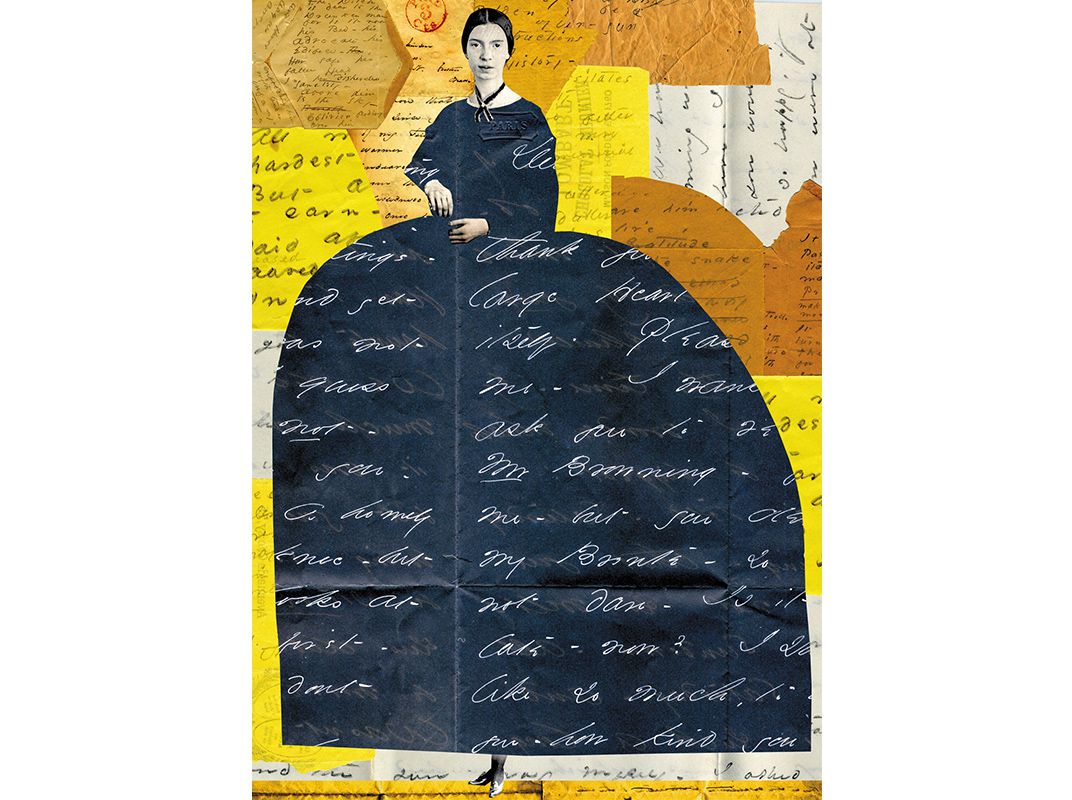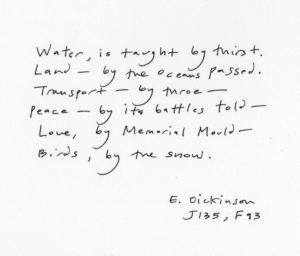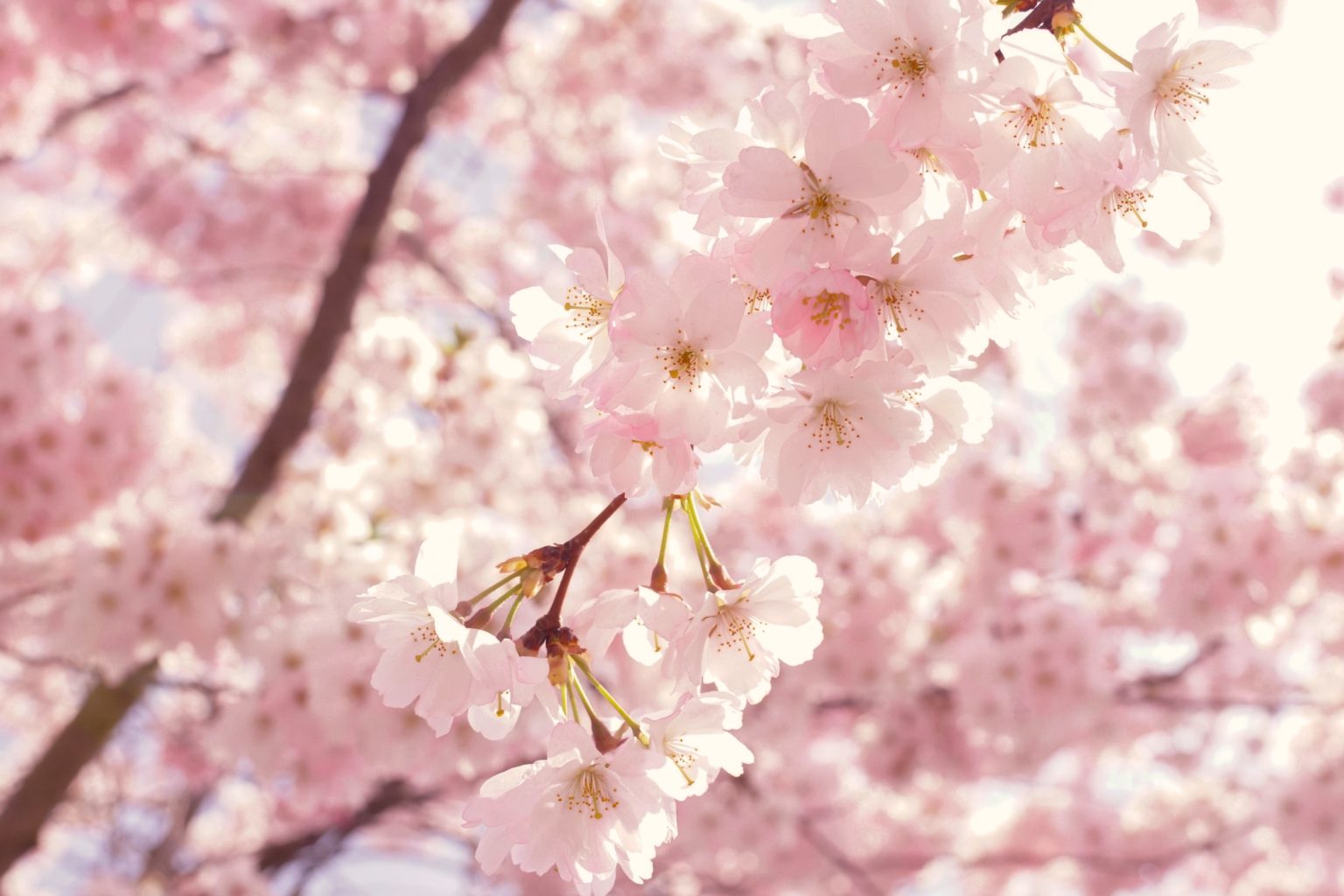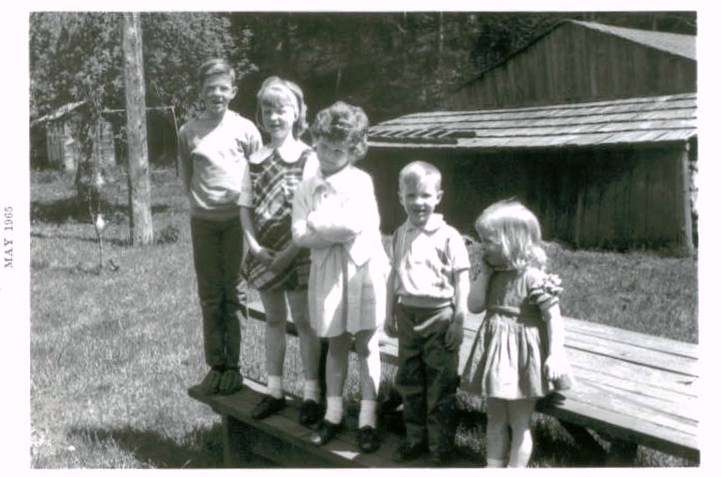How to Begin
I have a couple of friends who tell me that they are thinking of putting together a book. I’m thinking of putting together a class (fall?) for how to put together a book. None of us seems to be making much progress toward our intended goals.
How to begin a book is how you begin anything. You begin.
When I walk, I am often a bit pressed for time. I’m negotiating with myself as I set out, thinking that maybe just five minutes today…well, okay, maybe fifteen minutes. I set the timer on my phone for 7 1/2 minutes, knowing that if I turn around when it chimes, I’ll get my fifteen.
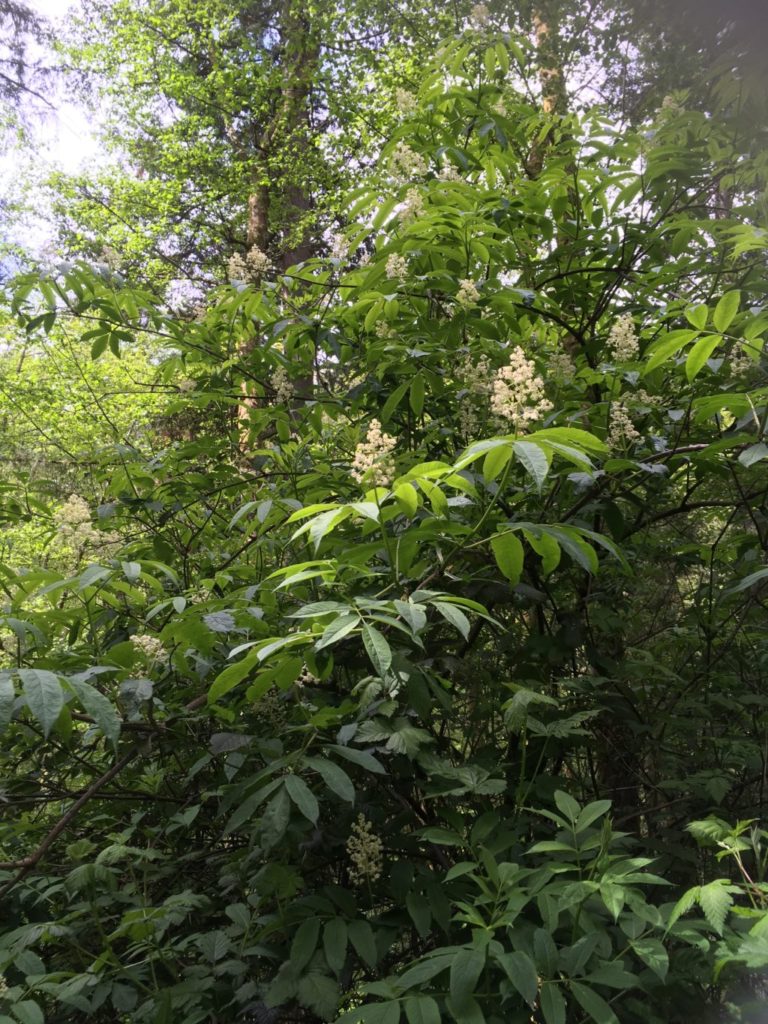
From one of my recent walks — I think this is elderberry in bloom, but I need to check.
But at the end of 7 1/2 minutes, I think, I could do 7 1/2 minutes more. Often, I do about 30 minutes in and 30 minutes back — it must have to do with that thing we learned in fifth grade about bodies in motion (they tend to stay in motion).
Writing is like that, too. But how is writing a book like that?
My best advice for the beginning of a book is to find a move, make a movement, that will actually look like building a book. For me the very early steps are these:
- choose a notebook (I have a ton of these, to be repurposed, though sometimes I splurge and buy a new one)
- create a title page — even if you know it’s a “working title” and not something you’ll keep (remember, you’re just getting yourself into motion)
- write a dedication (my mystery novel is dedicated to my friends and it is in memory of my mother, who read nothing but mystery novels)
- choose an epigraph or two (mine is from Agatha Christie; without looking it up, I think it goes — “I do think you should be more careful in how you choose your friends.”)
From there, you can begin sticking pages in, even if they aren’t in order. From now on, whenever you can find fifteen minutes to work (whether daily or weekly), you’ll know where your pages are. When you aren’t inspired to write, you can still work at scribbling in margins, moving pages around, or listing ideas for bits you want to write.
I could add something about getting your work “off-line” and onto actual pages — there’s some brain science to back up how important it is — but I’m working at the library in the middle of a walk, and now I need to go home to dinner.
Do let me know how your book is coming along! (And I’ll let you know if I make progress on creating the class.)

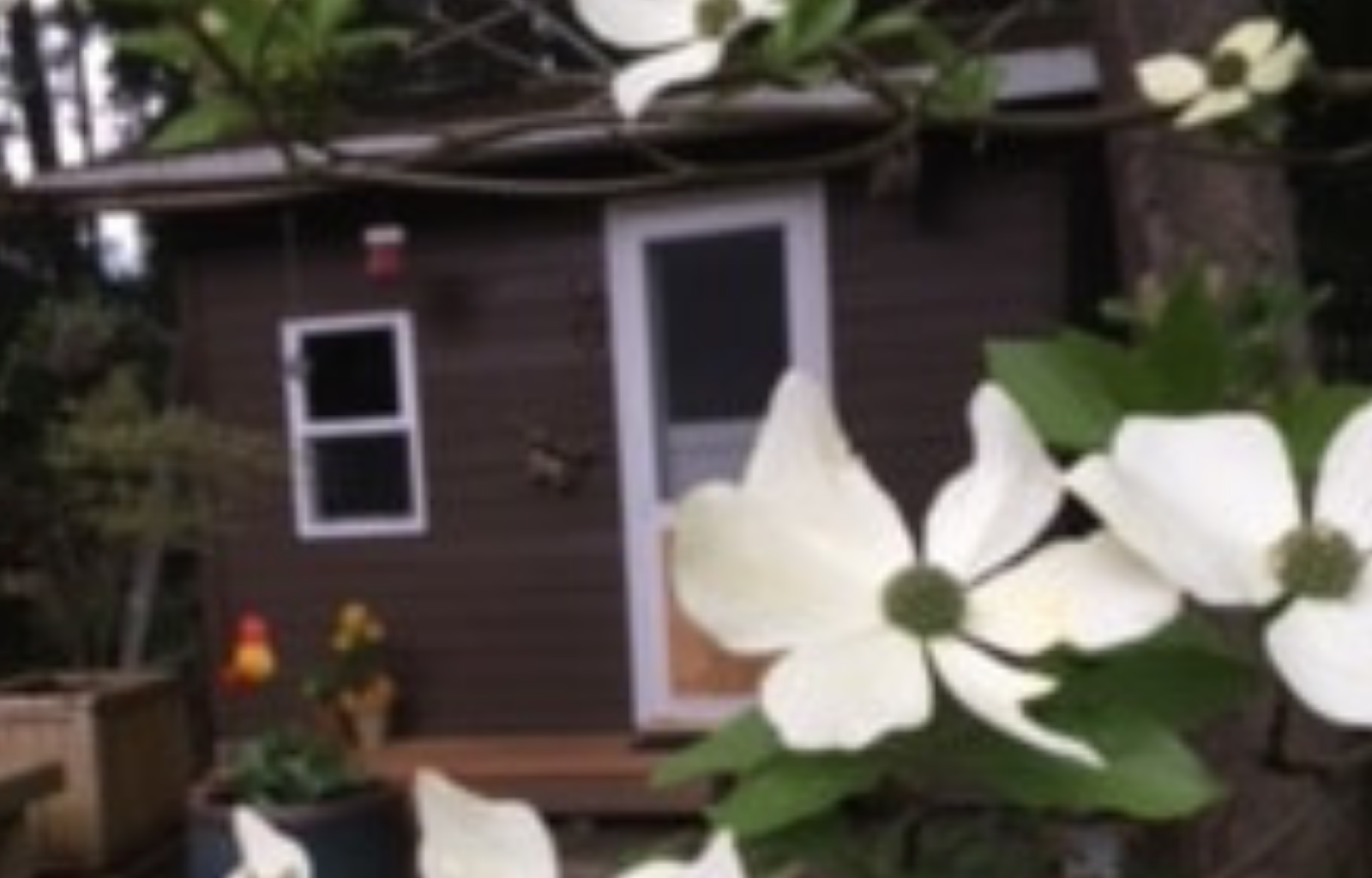

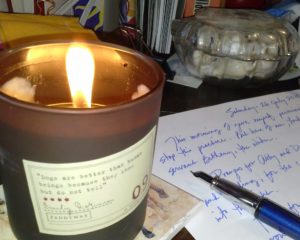 I have loved her story, and her writing, from the time I first met her, and I love it still. But when she said she was back at work on the memoir — despite working more than full-time in a stressful, human-services job, despite all the usual drama with marriage and barely grown-up children — I expected to see the same old pieces, pulled up from the archives, re-read and maybe fluffed up a little, like pillows on a guest bed. I didn’t expect that I was inviting a deluge of new and (sometimes) shockingly revealing chapters in her life story.
I have loved her story, and her writing, from the time I first met her, and I love it still. But when she said she was back at work on the memoir — despite working more than full-time in a stressful, human-services job, despite all the usual drama with marriage and barely grown-up children — I expected to see the same old pieces, pulled up from the archives, re-read and maybe fluffed up a little, like pillows on a guest bed. I didn’t expect that I was inviting a deluge of new and (sometimes) shockingly revealing chapters in her life story. Which is exactly what my beta readers have done, by the way. So where does this fear come from? What is it that makes me start questioning every little thing (should the protagonist’s dog not be an English bulldog but some other breed? what if I took her daughter out of the story completely? am I getting away with all the backstory? is there going to be a romantic element, or do I let that go? sure, it’s okay, but what else could happen??????)
Which is exactly what my beta readers have done, by the way. So where does this fear come from? What is it that makes me start questioning every little thing (should the protagonist’s dog not be an English bulldog but some other breed? what if I took her daughter out of the story completely? am I getting away with all the backstory? is there going to be a romantic element, or do I let that go? sure, it’s okay, but what else could happen??????)